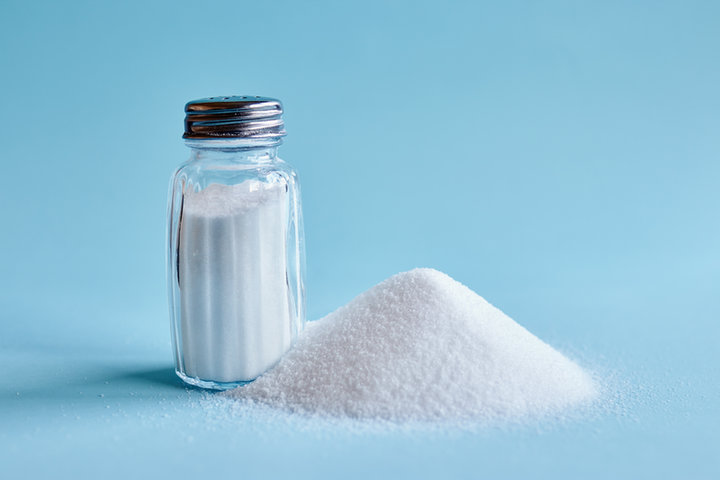Salt – the flavour of life
Three are the things I have in common with my sister. We share a passion for music, are keen movie buffs and we both have the habit of salting our food before eating it.
Whether salt should be added to food or not does stir a certain deal of debate. We might even say that we live in times dominated by “nutritional anxieties” which, though legitimate and commendable, do sometimes trigger bouts of excesses.
Who hasn’t been reprimanded at least once, perhaps at home, for putting too much salt in your food, and also predicted he would have developed atherosclerosis because of abusing of it?
“And, by the way, you don't even feel the taste of what you eat with all that salt” is the typical closing line to back it up nicely and make sure you don’t fire back. Tired of the uncalled advice on my health, over the years, I resorted to skillfully add salt to food without being noticed, when the others aren’t looking.
Apparently, there is some truth in all those avoid-the-salt warnings.
While, on one hand, it is true that we cannot live without salt because of the sodium it provides to our body (I have read that our body has about 250 grammes of it, that we consume it continuously, that it carries oxygen and nutrients and it allows the transmission of nerve impulses and muscle movement), on the other hand, it is also true that taking excessive amounts of salt can really have a serious impact on our cardiovascular system, for instance, besides on other body functions as well.
In addition, the situation is even worse today because of the "concealed salt" we ingest and that is found in many industrial food products. Unfortunately, as we mentioned above, in the long run you get used to how salt and seasonings make your food taste, thus you do develop a bit of an addiction to using them.
Though it is true that enhancing taste of food makes it more enjoyable, over-doing it will also make you lose the original taste that food had. As with all things, the best thing is to use a bit of common sense and caution when adding salt and flavourings to your food.
What is the history of salt we use for cooking purposes?

It seems certain that we started appreciating salt in the Neolithic times, over ten thousand years ago, as a substance used to preserve food. Its use to enhance taste of food will come only later.
Because of the many qualities and uses salt had, over the centuries it became a very precious element of everyday life, thus it triggered strong demand and trade.
Salt was extremely important. The ancient Roman soldiers got paid with salt (those wages were called salarium, hence the modern term salary), salt gives the name to an important road in ancient Rome - Via Salaria – that connected the mouth of the river Tiber with the salt pans of Ostia. Salt trade has been an important activity for centuries and up to modern times. In Italy, the sale of salt was controlled by the government and regulated by the State Monopoly (the tax on salt sales was abolished only in 1975) through tobacconists, who sold it along with tobacco products?
Salt also gave the name to the historic Salt March, which took place in 1930 in India and was an act of civil disobedience led by Gandhi to protest British rule in India in the struggle to achieve independence.
Salt is so present in our life, culture and customs that we even use it in colloquial expressions. You might have said that someone isn’t “worth his salt”. Well, that goes back to those Roman troops battling through Europe and refers to a soldier who is not doing enough to earn his “salarium”.
The Bible makes a lot of references to salt as well. For instance, when fleeing the city of Sodom, the Bible tells us of Lot 's wife transformed into a statue of salt for looking back towards the city, while the Gospels refer to disciples as being “the salt of the earth”. Salt is broadly mentioned in literature, for instance by author George Bernanos: “Salt stings on an open wound, yet saves you from gangrene”. In a novel by Luigi Pirandello, Ciaula discovers the moon – 1912(Ciaula scopre la luna),
Ciaula is a poor worker basically reduced to slavery in the mine he works in every day. One night, after working late in the mine, he gets lost in the dark tunnels and his lamp goes out. Terrified, he manages somehow to emerge from the mine and enjoys one single consolation, that of savouring with his tongue the salty bitterness of the tears that he sheds for the joy of being out of the darkness and in the open air.
Salt recurs in our individual and collective imagination as a metaphor for life (health, taste) and desolation (bitterness, death). Sounds like a contradiction? An oxymoron?
Nature never contradicts itself. Nature simply demands that we understand it, build our knowledge of it - undoubtedly, knowledge is the best flavouring for life after all.
In modern language, we even use salt to give advice, like when we say to take something with a "grain of salt" or "pinch of salt", an English idiom that suggests to view something, especially claims that may be misleading or unverified, with skepticism or to not interpret something literally.

Listen!
PODCAST
Listen to the article!
Voice: William Scott Agostini
TKS Publisher staff







